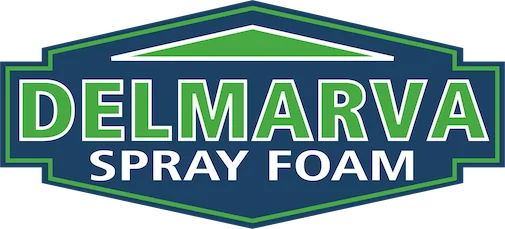Spray Foam Insulation FAQs
A: The upfront investment for spray foam insulation is higher than that of other types of insulation. But the two-in-one insulating and air sealing power that spray foam provides makes it a worthy investment and helps you recoup your installation costs quickly.
A: While both types of spray foam provide outstanding air sealing and insulating power for your home or building, they do differ in some important ways. Open-cell spray foam is less dense than closed-cell. It has a softer texture and a slightly lower R-value. It’s ideal for interior walls and some attic applications where sound dampening and breathability are desired. Closed-cell spray foam is denser and more rigid, with a higher R-value than open-cell foam. It also acts as a moisture barrier and adds structural strength, making it the best choice for crawl spaces, exterior walls, and unvented attic rooflines.
Our insulation experts are here to help you choose the best type of spray foam for your home.
A: Yes, spray foam is safe for you and your family when installed properly by trained professionals. It is recommended vacate the installation area for 24-48 hours to allow time for the insulation to cure. Once cured, spray foam is safe, durable, and effective.
A: Spray foam installation typically takes a few hours to a full day, depending on the size and complexity of your project. Your installer will prep the area, apply the foam in layers, and allow it to cure and fully set. Once the spray foam has cured (usually after 24-48 hours), the foam is safe, durable, and effective. Rest easy, our team members will walk you through the timeline and safety precautions before starting the job.
A: Yes, spray foam insulation meets Delaware building codes when installed correctly and with approved materials. Installation typically requires meeting specific R-values, fire safety measures, and moisture control standards. Permit requirements vary between cities. It’s always best to work with a licensed contractor, like Delmarva, that is familiar with Delaware’s codes and permitting requirements.
A: Spray foam does create an air-tight seal that improves energy efficiency but can reduce natural ventilation. With proper mechanical ventilation this isn’t a problem. Spray foam improves indoor air quality in most homes because it blocks pollutants, allergens, and moisture from entering. This creates a healthier, more controlled indoor environment.
A: Yes! Spray foam is an excellent choice for your basement or crawl space Closed-cell spray foam is especially effective in these areas because it resists moisture, provides a high R-value, and acts as both an air and vapor barrier. Always consult with your Delmarva professional to determine the best approach for your specific space and building needs.
A: Look for a licensed, experienced contractor with strong local references and a proven track record in Delaware’s climate. Always check with friends and family for recommendations and online reviews. Our experienced team at Delmarva Spray Foam has been installing spray foam insulation for decades.
A: Professional spray foam installation is strongly recommended. Spray foam requires precise mixing, application, and safety precautions. Improper installation can lead to a host of problems. Licensed professionals, such as Delmarva Spray Foam, have the training and equipment to apply foam correctly, meet building codes, and ensure optimal energy efficiency and air sealing.
Q: Will spray foam insulation affect my home's resale value or cause issues during home inspections?
A: Spray foam insulation can increase your home’s resale value by improving energy efficiency, comfort, and utility costs savings. But, if not installed properly, it may raise concerns during home inspections, especially if it blocks access to wiring, plumbing, or attic ventilation. It’s always best to trust the job to a trusted professional who follows local building codes and best practices. Proper documentation and warranties can also reassure potential buyers and inspectors.


